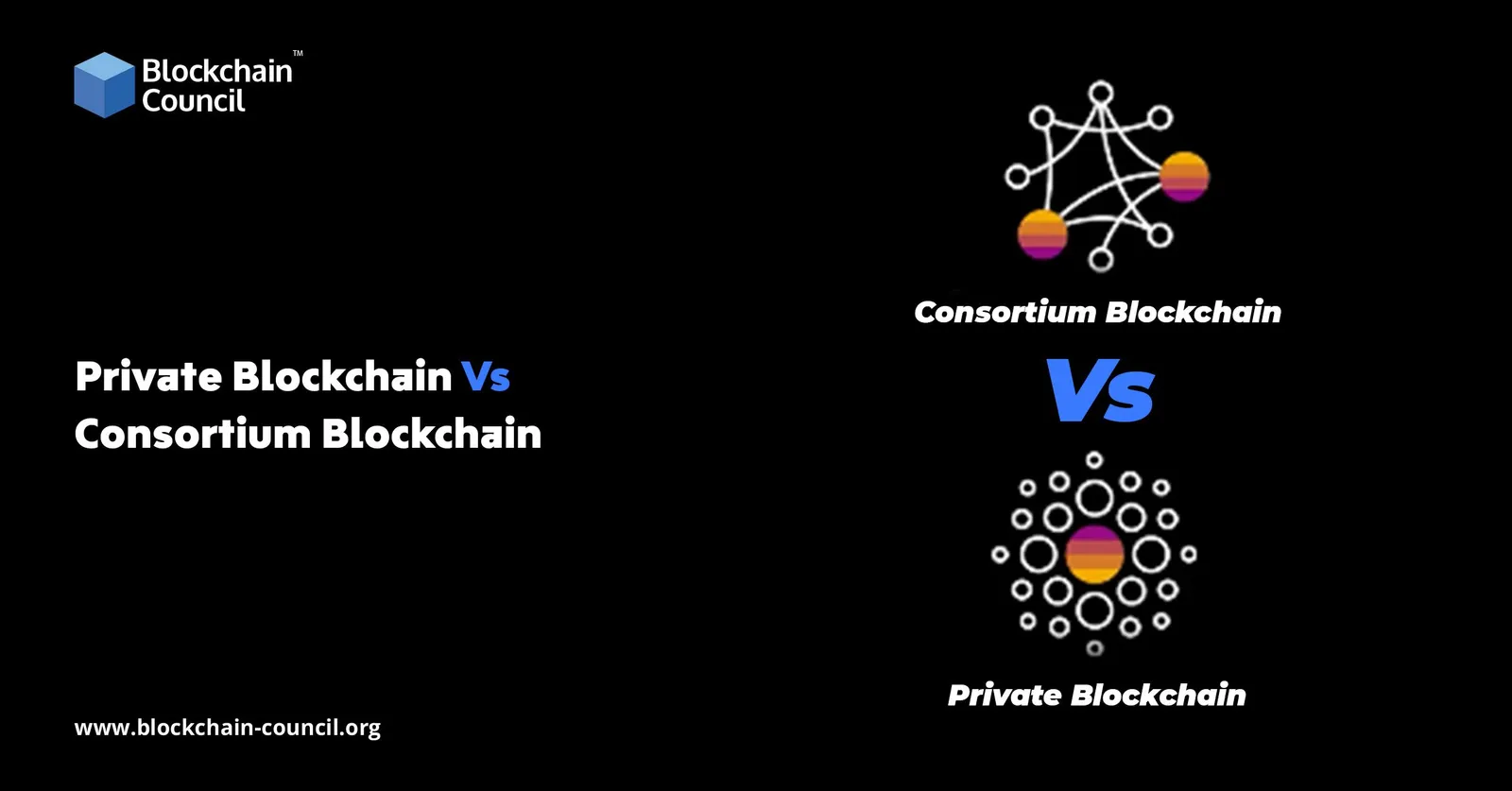Private Blockchain Vs Consortium Blockchain: What’s the difference?
Blockchain technology is a distributed, decentralised ledger that enables the registration of transactions, the tracking of properties, and the establishment of trust all without the involvement of a third party. There are three types of blockchain platforms available on the market for various reasons: public blockchains, proprietary blockchains, and consortium blockchains.
Regardless of the variants, all blockchains are networks of peers with append-only ledgers that agree on the correctness of transactions through a consensus mechanism.
Due to the rapid advancement of blockchain technology, the variety and job opportunities are virtually endless. If you want to jumpstart your career and pursue a career as a blockchain developer, you have a plethora of opportunities ahead of you. Learn blockchain for beginners online and then enter the illustrious world of blockchain growth.
**But first, let’s find out what Private and consortium blockchain mean
What is Private Blockchain?**
A private blockchain is a permissioned blockchain platform, while a public blockchain is permissionless, meaning that nobody can access the network and read, write, or communicate with the blockchain without permission. These blockchains are access-restricted, limiting the number of users who may enter the network. These blockchains are more suited to corporate use cases, where a business requires the benefits of blockchain technology without exposing its network to the public.
What is Consortium Blockchain?
Consortium blockchain, alternatively referred to as federated blockchain, is a type of blockchain technology that is controlled by a network of entities rather than a single one. It is not a public forum, nor is it password-protected. This type of blockchain is most advantageous when a large number of businesses operate in the same market and need a centralised network for conducting transactions or relaying data. Although it might seem that these blockchains are similar to private blockchains, they are not.
**Private Blockchain Vs. Consortium Blockchain
Decentralization**
Due to the fact that the blockchain infrastructure is controlled by a single entity, private blockchain creates a partly decentralised network that is governed by a set of laws and regulations.
On the other hand, though consortium blockchains are permissioned, they achieve true decentralisation because, unlike private blockchains, they enable multiple entities to make network-wide decisions.
Accessibility
Private blockchains are managed by a centralised body.
On the other hand, a consortium blockchain is managed by a group of individuals rather than a single individual. It is a password-protected forum that enables different businesses to collaborate on decisions.
Consensus Mechanism
In private blockchains, voting or multi-party consensus processes are used. Despite its reputation for resource conservation, it is insecure as compared to energy-intensive consensus algorithms such as Proof of Work.
Federated blockchains, on the other hand, achieve an agreement through the use of multi-part consensus algorithms or voting systems.
Handling Data in the Ledger
Since private blockchains are controlled centrally, they allow both read and write access to the ledger, meaning that once a transaction is registered, it cannot be altered. However, in this situation, only one authority has the ability to write or interpret any entries in the ledger.
Although no one has the ability to change any of the consortium blockchain’s database entries. Unlike a private blockchain, however, the ledger enables several individuals to write and read transactions.
Wrapping up
Each blockchain is a distinct technology that can be used in a variety of situations. Combining private and consortium blockchain platforms is straightforward since they both provide anonymity, protection, and rapid performance. Consortiums are ideal for organisations looking to streamline their networking, while private blockchains are better suited to a single entity.
#blockchain developer career #blockchain development #learn blockchain online #blockchain training #blockchain platform
